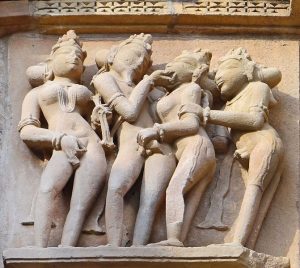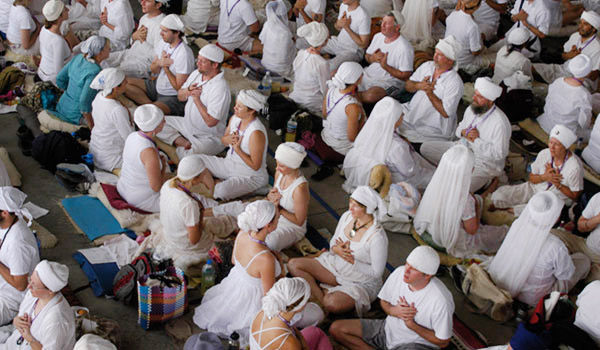
If only the ancient texts had more pictures.
Tantra, as all the tantra festivals will fall over themselves to tell you, isn’t just about sex. It’s an ancient spiritual tradition with Hinduism that has been widely practiced across India and its origins are buried in the mists of time. Of course, anything New Age needs an ancient origin story to validate it but just check out the Wikipedia entry for Tantra to get an idea of how impenetrable the whole topic is. Few modern tantra courses would lay much emphasis on the following core tenets of Tantra, for instance, as laid out by one religious scholar.
- Centrality of ritual, especially the worship of deities
- Centrality of mantras
- Visualisation of and identification with a deity
- Need for initiation, esotericism and secrecy
- Importance of a teacher (guru, acharya)
- Ritual use of mandalas (maṇḍala)
- Transgressive or antinomian acts
- Revaluation of the body
- Revaluation of the status and role of women
- Analogical thinking (including microcosmic or macrocosmic correlation)
- Revaluation of negative mental states
So are all these Tantra festivals some Hindu sect?
Of course not! It wouldn’t be marketable…
Instead what we have today when we talk about tantra is the juiciest bits of ancient esoteric practice simplified and re-imagined in the rosy light of New Age spirituality. It’s all about union, transcendence, harmony, sacred sexuality and so on. Everyone wears white and walks around with that glittering look in their eyes that makes a less spiritual person want to hit them on the nose.
At their best, tantra festivals can bring mindfulness into sexuality and, in an age where porn has become the driving cultural force behind how people have sex, modern tantra can offer another approach to making love; instead of two people essentially using each other’s bodies to achieve a release from sexual frustration, they can learn to bring intimacy into touch, become comfortable with their own bodies, embrace sexuality as a form of communication even communion.
And tantra really can extend beyond sexuality into a creative and sensual approach to living where you accept each thing that happens to you as an opportunity to be aware, to create.
At their worst tantra festivals repeat the tired old cliches of masculine and feminine energies, of Siva and Sakta, of polarities and the kind of understanding of gender roles and sexuality that were fashionable in 19th century Europe. The same old cliches are exchanged with simmering eye to eye gazes, the erotic atmosphere crackling only a little at the insincerity of all the soul connections people claim to suddenly feel.

I’m not wearing white, I’m just harmonising all the primary colours..
That’s not to say you’re going to get laid at a tantra festival. But dress up in white, put on a crystal mala, give yourself a name like Krishna Lightwalker and who knows, the god or goddess of your dreams might manifest..
Here’s a more detailed (and less cynical) introduction to tantra festivals!
